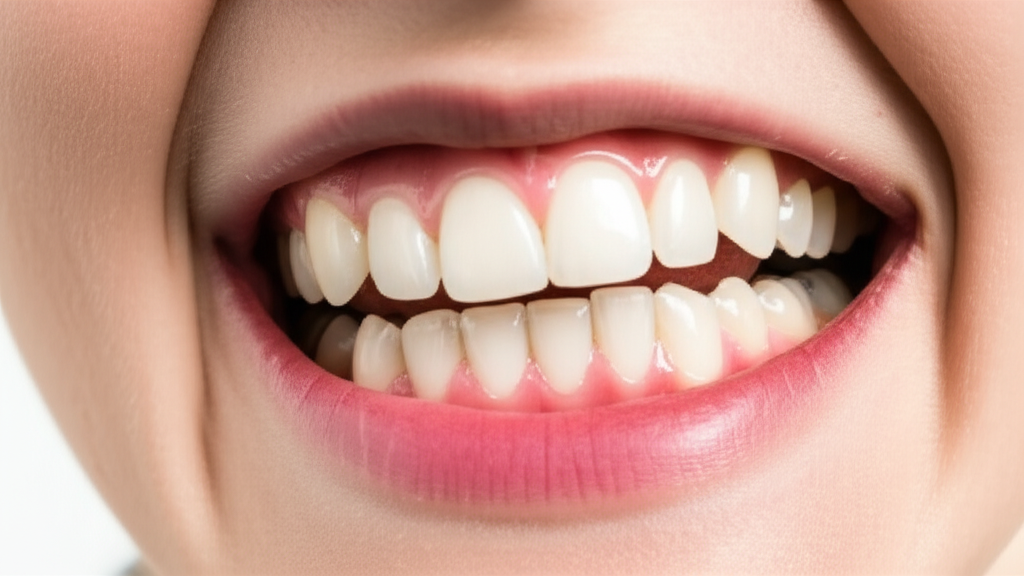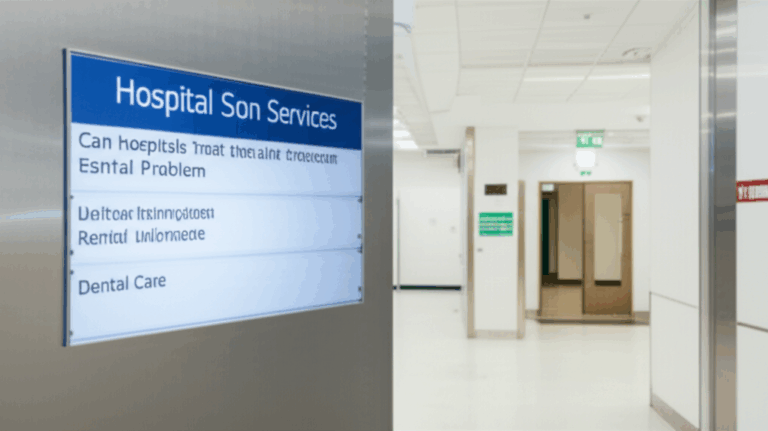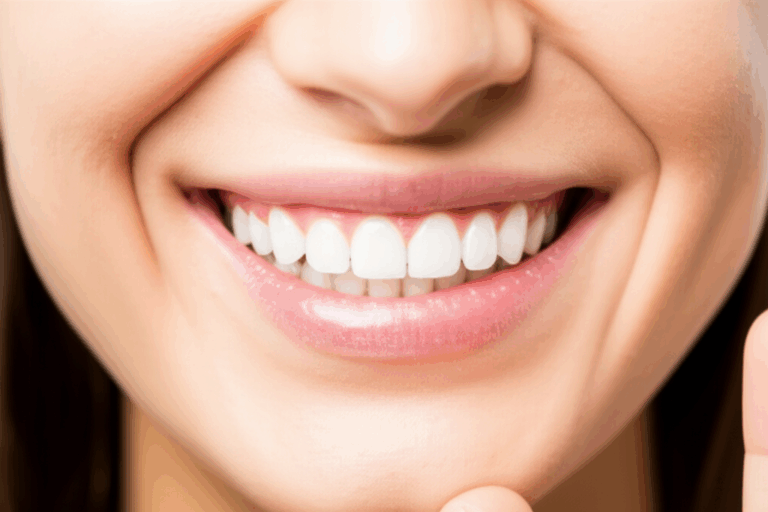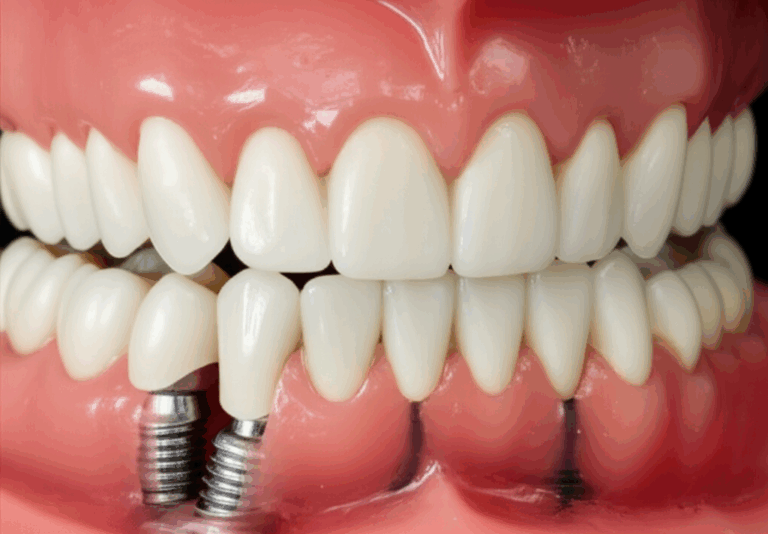
Can Adderall Cause Dental Problems? Understanding the Risks & Protecting Your Oral Health
Summary:
Have you or someone you care about ever wondered, “Can Adderall hurt your teeth?” This article looks at that question in plain language. If you take Adderall or know someone who does, you’ll want to know the unexpected ways it can affect your teeth and gums. We’ll talk about the problems, explain why they happen, and—best of all—show you how to keep your smile safe and healthy for years. Stick around because what you learn here could save your teeth.
Table of Contents
- What Is Adderall?
- How Does Adderall Affect Your Teeth?
- Why Does Adderall Cause Dry Mouth?
- What Happens When Saliva Disappears?
- Does Adderall Make You Grind or Clench Your Teeth?
- Which Dental Problems Are Linked to Adderall?
- Signs and Symptoms That Need Attention
- Preventing Dental Trouble on Adderall
- When Should You Call the Dentist?
- How to Build a Healthy Dental Routine
- Extra Help: What About Dental Labs and Professional Solutions?
- Frequently Asked Questions (FAQ)
- Main Points to Remember
What Is Adderall?
Adderall is a common medicine doctors use to help people with ADHD (Attention Deficit Hyperactivity Disorder) and narcolepsy. It has amphetamine and dextroamphetamine—these are both stimulants that change chemicals in your brain, like dopamine and norepinephrine. For many people, Adderall helps with focusing in school or at work.
But with all medicines, there’s the good stuff and sometimes the bad stuff. I’ve talked with many folks who felt a big change in their mouth soon after starting Adderall. They ask, “Hey, is Adderall bad for your teeth?” That’s what this article is all about.
How Does Adderall Affect Your Teeth?
Here’s where things start to get interesting—maybe even a little scary. Adderall can change how your brain talks to the rest of your body. One surprising effect is on your mouth health.
Adderall can lead to:
- Dry mouth (called xerostomia)
- Teeth grinding or jaw clenching (called bruxism)
- Changes in what you eat (many want more sugary or sour snacks and drinks)
- Forgetting to brush (when busy or focused)
Why do these side effects matter? Let me tell you a story. I knew a friend called Sam. When Sam started Adderall for his ADHD, he loved how much he could pay attention in class. But, after a few months, he bit into an apple and felt a sharp pain. Later, the dentist said he had three new cavities.
You see, Adderall can make you more likely to get with tooth troubles like tooth decay, cavities, sore gums, or even chipped teeth. The next few parts will show you why.
Why Does Adderall Cause Dry Mouth?
Let’s make this simple. When you take Adderall, it tells your brain and body to “wake up and go!” This is good for focus, but not for your saliva glands. These little glands keep your mouth wet.
Adderall slows down spit making. That’s called dry mouth (xerostomia). Without enough spit, your mouth gets dry like a desert. Your tongue gets sticky. Swallowing bread or crackers feels hard. Worse, your teeth lose their helper—saliva.
What does saliva do?
- Washes away food and germs
- Stops acids in the mouth
- Helps fix teeth after you eat
Most people on Adderall get dry mouth every day. Some studies say up to 80% get this feeling. I bet you know that dry feeling if you’ve taken the medicine.
What Happens When Saliva Disappears?
Here’s the problem: no spit means big troubles. Without spit, germs in your mouth go wild.
Bacteria eat leftover sugar and make acid. These acids make holes in your teeth, called cavities or tooth decay. Over time, these holes can get big. You might not even notice pain at first.
And that’s not all. Your gums need spit to stay healthy. Dryness lets germs hide under your gums—causing gingivitis or bad cases of gum disease. Your gums might bleed when you brush, get red, or swell up.
There’s one more problem—oral thrush. This is when a fungus (candida) grows in a dry mouth. White spots show up on your tongue and cheeks. It’s itchy, sore, and annoying.
Does Adderall Make You Grind or Clench Your Teeth?
You may not notice this until your face feels tired or your jaw hurts. But lots of people who take Adderall start to grind or clench their teeth, often at night. This is called bruxism.
Why does it happen? Adderall works like fuel for your body’s “go” system. Muscles, even in your jaw, get tight. Your teeth might press together, sometimes making a squeaky noise. Some people hear jaw clicks or pops—TMJ (jaw joint problems).
All this grinding wears down the tough enamel that covers your teeth. You might see:
- Cracks or chips in teeth
- Teeth that hurt with hot or cold
- Sore jaw muscles in the morning
Bruxism doesn’t just stop with teeth. It can mess with your whole face. Headaches and earaches can happen, too.
Which Dental Problems Are Linked to Adderall?
Let’s list them, so you’ll know what to look for:
Tooth Decay and Cavities:
Dry mouth causes tooth decay. Teeth without spit get attacked by germs faster.
Gum Disease:
No spit means you can get gingivitis (swollen, bleeding gums) or periodontal disease, which even hurts your jaw bone.
Enamel Erosion and Sensitivity:
Acid and grinding make enamel thin. That gives you pain with ice water or sweets.
Cracked or Chipped Teeth:
Clenching? Grinding? Add a popcorn seed, and crack! There goes a molar.
Jaw Pain and TMJ:
Ever feel like your mouth won’t open all the way? Or hear a pop? That’s your jaw joint getting worked too hard.
Oral Thrush:
The dry mouth lets fungus move in, causing sore white spots.
Bad Breath:
No spit means food and germs stick around, leading to stinky breath.
Signs and Symptoms That Need Attention
Watch closely for these warning signs:
- Your mouth feels dry no matter how much you drink
- You see new spots or holes on your teeth
- Gums bleed when you brush or feel sore
- Teeth hurt from hot or cold
- Teeth feel wiggly or loose
- White spots on your tongue or cheeks
- Jaw hurts or makes noises
If you see any of these, don’t wait. Tooth problems can get worse fast. I once ignored a cracked tooth for months, thinking it was nothing. By the time I saw a dentist, it was a serious infection. Trust me—you don’t want that!
Preventing Dental Trouble on Adderall
The good news? You do NOT have to quit your medicine just to keep your smile looking good. Let’s use the PAS (Problem, Agitate, Solution) method here:
- Problem: Adderall causes dry mouth, teeth grinding, and risky tooth changes.
- Agitate: These can lead to pain, expensive dental fixes—even lost teeth!
- Solution: Get on top of problems with easy steps. You can protect your teeth, gums, and jaw with some smart habits.
Here’s how:
Drink Water All Day:
Sip water from morning to night to keep your mouth wet. Carry a water bottle everywhere.
Chew Sugar-Free Gum (with Xylitol):
This wakes up your spit glands and washes away food. Chewing also keeps your jaw busy, which helps with clenching.
Skip Sugary and Sour Foods:
Soda, juice, candy, even dried fruit make tooth decay worse. Crunchy veggies or cheese are safer.
Be a Brushing Star:
Brush two times a day with fluoride toothpaste. Floss every night, even if you’re tired. Electric toothbrushes help a lot.
Use Rinses and Moisturizers:
Alcohol-free mouthwashes help keep your mouth fresh. Spit sprays or gels sold in stores work great if water isn’t enough.
Protect Your Teeth:
If you grind your teeth at night, talk to your dentist about a custom night guard. It can save your enamel, your jaw, and maybe your wallet!
When Should You Call the Dentist?
Don’t try to fix every tooth problem at home. Some things need a pro:
- Dry mouth that won’t go away
- Sudden tooth pain or cracks
- Bleeding or swelling in gums
- Jaw pain or noise
- White spots that don’t leave after a week
Dentists do more than just fill holes. They have tips and treatments—like special fluoride, custom guards, or anti-fungal rinses—for troubles caused by Adderall. Be honest and tell your dentist every medicine you take, including Adderall.
And don’t forget: Regular visits matter even extra when you take ADHD medicine. Try for every 4-6 months.
How to Build a Healthy Dental Routine
Let’s get to real actions. Here’s a daily and weekly tooth care list for anyone on stimulant meds like Adderall:
Morning:
- Brush with fluoride toothpaste for 2 minutes
- Rinse with alcohol-free mouthwash
- Eat breakfast that’s safe for teeth (skip the juice)
During the Day:
- Drink water all day—not just when thirsty
- Chew sugar-free gum or suck xylitol mints
- Snack on veggies or cheese
Evening:
- Floss between each tooth
- Brush again for 2 minutes
- Use a spit spray or rinse if your mouth is dry
Weekly/Monthly:
- Check your mouth for new spots, sores, or cracks
- Make dentist visits every 4-6 months
- Ask about strong fluoride treatments or prescription toothpaste
If you or your family have things like retainers, night guards, or removable teeth, be sure to keep those clean. For the latest on custom mouthguards and appliances, check this night guard dental lab.
Extra Help: What About Dental Labs and Professional Solutions?
Sometimes, brushing is not enough. Good news: there are special experts who handle only teeth. Dental labs make night guards, retainers, crowns, bridges, and false teeth. They work with dentists to make sure everything fits right.
Here are a few things they do:
- Crowns and bridges: If teeth crack or rot, a crown and bridge lab builds strong covers for them.
- Removable dentures: Really bad gum trouble may need dentures. A good removable denture lab makes teeth that feel and look real.
- Dental ceramics and implants: Some dental offices use a dental ceramics lab or implant dental laboratory for harder jobs.
- Learn about tooth problems: For more about gum issues, cavities, and how to care for your mouth, visit this handy dental diseases page.
If you need a special fix, don’t be afraid to ask your dentist which lab or treatment is right.
Frequently Asked Questions (FAQ)
Q: Is Adderall dangerous for my teeth?
A: Adderall can make your mouth dry and cause grinding, which can hurt your teeth if you don’t take care of them. But with good brushing, food choices, and regular tooth care, you can lower the risk.
Q: How can I tell if my mouth is too dry?
A: If your mouth feels sticky, it’s hard to swallow crackers, or you notice your breath smells bad, you might have dry mouth.
Q: What’s the best drink for Adderall dry mouth?
A: Water is best. Stay away from sugary or sour drinks.
Q: Should I stop taking Adderall if my teeth hurt?
A: Don’t stop your medicine without talking to your doctor. Instead, visit your dentist for help and advice.
Q: Will a night guard really help with clenched teeth?
A: Yes! A custom night guard can protect your teeth and jaw when you sleep.
Main Points to Remember
- Adderall can cause tooth problems, especially dry mouth and teeth grinding.
- Dry mouth means more cavities, gum trouble, fungus, and stinky breath.
- Grinding and clenching can break teeth and mess up your jaw.
- Drink water, chew sugar-free gum, brush with fluoride, and floss every day.
- See your dentist every 4-6 months—and always share your medicine list.
- Custom mouthguards and check-ups can stop you from needing expensive repairs later.
- Ask your dentist about dental labs and the best tools for your teeth.
Taking care of your mouth while on Adderall is not only possible—it’s easy, once you know how. Stay alert, protect your smile, and you’ll feel great every time you show your teeth!








